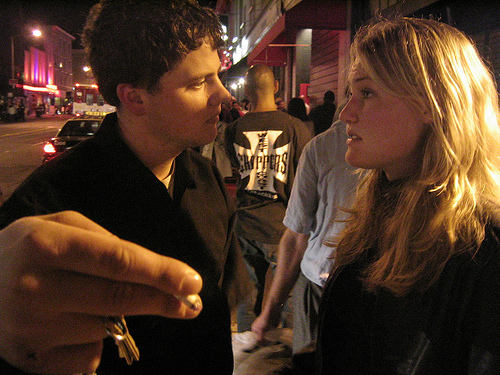I’ve long had a problem with the acclaimed Shel Silverstein picture book The Giving Tree. It’s the story of a “friendship” between a tree and a boy in which the tree progressively gives everything it has–starting with the reasonable gifts of shade and fruit and a place to climb, but pushing on to the point where it urges the boy to cut it down–in order to make the boy happy.
Don’t get me wrong: giving is wonderful. What’s not wonderful is giving everything you have and are away. Self-sacrifice is one of the 18 problem mental schemas covered by the school of psychology known as schema therapy (see “Mental Schemas #13: Self-Sacrifice“).
Women seem to be disproportionately the victims of self-sacrifice. While many of us grow up with the message that it’s better to give than to receive, it seems that girls more often than boys are told that it’s always right to do things for others and never right to do things for ourselves.
Healthy relationships require balance. Everyone involved in the relationship is important, and when the needs of one person completely trump the needs of the other, both suffer. The giving side of this is called self-sacrifice; the taking side is another mental schema, Entitlement, and it’s not particularly fun to be afflicted with either.
What makes the boy in the story so comfortable hurting the tree to benefit himself? Why, when the tree is demonstrating such extraordinary consideration for him, does he feel so little concern for her?
Some people interpret the story as a straightforward parable of parents and children, and I suspect it was intended this way. The problem is that as much as a parent-child relationship for a long time is a lopsided arrangement, children are not so important that adults should ignore their own needs entirely in order to satisfy the child’s every whim. If this sounds insufficiently nurturing, consider this: one of the most important jobs parents have is modeling strong, healthy relationships. A child who gets everything while the parents give everything either follows the parent’s model and becomes a tool for the takers of the world, or (more likely) grows up with a sense of being the center of the universe, not subject to the same rules as everyone else, entitled to do anything that seems necessary to get a desired outcome–in other words, a taker him- or herself.
Another thing to consider about self-sacrifice is that sacrificing so much that one’s needs aren’t getting met usually results in emotional trouble. We all need a certain amount of love, consideration, and support. When we tell everyone else that they should take everything they want from us and never need to give anything back, we don’t get those things, and as a result we become stunted and often bitter. By giving everything, we end up having less available to give, just as the tree could have continued giving shade, apples, oxygen, and a place to play for generations if it hadn’t tried to give up its entire being just so the boy could make a boat.
To really be able to give the most to others, we have to be willing to receive some things ourselves.
Photo by karenhdy
Added afterward: In the same vein, Alison Cherry has an eye-opening version of the story on her site at http://alisoncherrybooks.com/blog/2011/12/8/why-i-hate-the-giving-tree.html .






